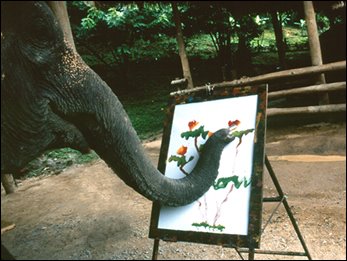
Image 1: Overcast Overwatch
SDCOE overlooking mission valley
Humongous, fluffy sculptures of iron grey water vapor churn impressively above the sprawling form of mission valley. Humming electrical lines stretch above the no-mans land between a SDCOE parking lot and a spacious golfing green. In the distance, stumpy mountains loom blackly; hazy from suspended moisture.

Image 2: Flagpole
SDOCE outside the
A soaring spike of steel spears the very belly of a cloud swathed sky, trailing the flag of our

Image 3: Ocean Sliver
SDCOE overlooking USD and the
Filtered through our rapidly warming atmosphere; the great constant, the enemy of comprehension, the soundless, motionless void that we call space takes on a cheerful azure hue. The barest sliver of an alarmingly acidic Pacific ocean can be seen peeking over the beaches and bridges of

Image 4: Power lines
SDCOE
Enough current to melt the flesh, fat, cartilage - indeed the very sinew off of your bones hums nonstop through towering modern minarets, metal obelisks commanding attention for miles around, demanding acquiescence to little yellow patches emblazoned with the words DANGER - HIGH VOLTAGE. Are such fortifications the best choice for electrical peregrination? It could be argued that, due to their resemblance to military installations, they should be considered with similar design elements. For instance, a tunnel would likely be a more strategically desirable format than a system of wires suspended hundreds of feet above the ground, in addition to being more aesthetically desirable.

Image 5: Plant Light
SDCOE
Sunlight illuminates flourishing plant life through a hole in concrete support columns, revealing in glorious color the majesty of photosynthesis and the beauty of chlorophyll. As everyone should know, chlorophyll is a naturally occurring pigment in plants that absorbs the red and blue spectrum while reflecting the green, and is essential to plant life as we know it. Concrete, on the other hand, was invented in a form very similar to the modern formula by the Romans, and is made with a mixture of cement, aggregate material, and water (plus optional and obscure chemicals). Concrete has excellent compressive strength but poor tensile strength, a combination of properties that generally necessitates some sort of reinforcement, like rebar grids or spirals.

Image 6: Busy Bees
SDCOE
As I sat, enjoying a solitary luncheon, my wandering attention was drawn to a faint buzzing originating somewhere over my shoulder. Imagine my surprise to find a bush immediately behind my bench so packed with flowers the leaves were almost invisible. A few placid bumblebees were busy exploring the same phenomena, albeit with a more invested interest. My lightning fast quickdraw skills were put into full effect as I unholstered my camera and snapped off a flurry of precise shots with the practiced ease of Clint Eastwood. A moment of contemplation later I had the camera set to “macro”, and spent a good deal of time trying to get a nice picture of one of the bees (a feat easier said than done, as their movements were erratic and constant). Feast your starved eyes on the succulent fruits of my labor, and remember that, just as one must refrain from gorging themselves after a prolonged fast, lest their stomach rupture and spill highly corrosive acids into the abdominal cavity, causing slow and excruciating death, you must try to remember to blink while gazing at these photographs, or risk the eyeballs losing too much of their precious moisture to evaporation. Take pains, also, that you do not allow yourself to become dehydrated by crying at their beauty - the human body is 75% water, after all.



